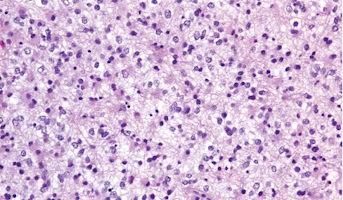Leveraging existing pediatric low-grade tumor specimens, clinical and imaging outcome data and artificial intelligence innovations to develop integrated biomarkers of response for children with low-grade glioma
Email Principal InvestigatorAbout this
Project
The overall hypothesis is that by using state of the art molecular profiling and artificial intelligence (AI) methods, we will develop imaging biomarkers that predict underlying subtype and response to therapies for pediatric low grade glioma (pLGG). The knowledge gap that will be addressed is our current limited understanding of integrated imaging and molecular characteristics; such increased insights will allow us to better match an individual child’s tumor to a specific therapy.
Ask The
Scientists
What are the goals of this project?
To develop and validate (a) imaging-based correlates for multi-omic LGG/BRAF signatures, and (b) prognostic radiomic and radiogenomic biomarkers for progression and survival. We will develop non-invasive, imaging-based signatures to predict underlying BRAF-alterations and molecular subtype. We will determine if radiomic signatures can predict tumor aggressiveness, progression and survival in pLGG.
Meet The
Team

Boston, MA

Philadelphia, PA, USA

Philadelphia, PA, USA

Philadelphia, PA, USA
Institutions

Harvard Medical School
Harvard Medical School is the graduate medical school of Harvard University and is located in the Longwood Medical Area of Boston, Massachusetts. Harvard Medical School has affiliation agreements with 15 of the world’s most prestigious hospitals and research institutes, vital partners that provide c

Primary
Operations Center

Children’s Hospital of Philadelphia
Joined onOperations Center for the Children’s Brain Tumor Tissue Consortium, the Children’s Hospital of Philadelphia (CHOP) is currently ranked 1st nationally for their Pediatric Cancer Program by U.S. News & World Report. CHOP’s Biobank is home to the CBTTC’s pediatric brain and CNS tumor biorepository; the



